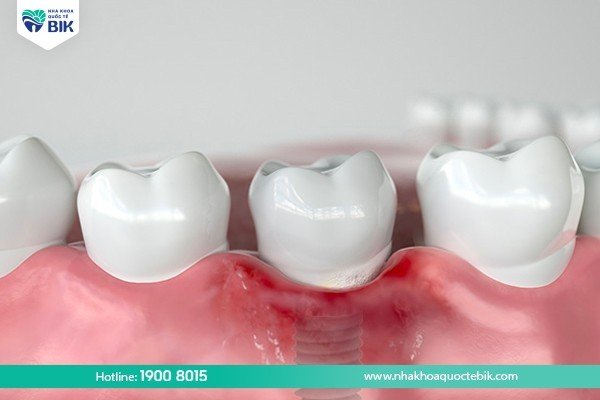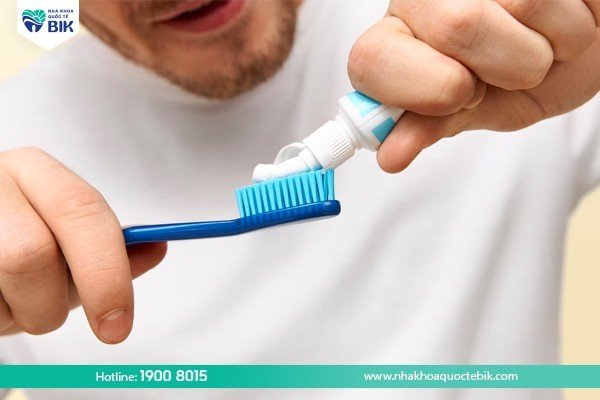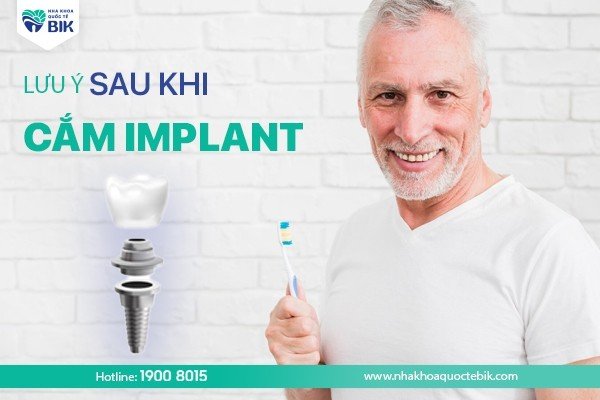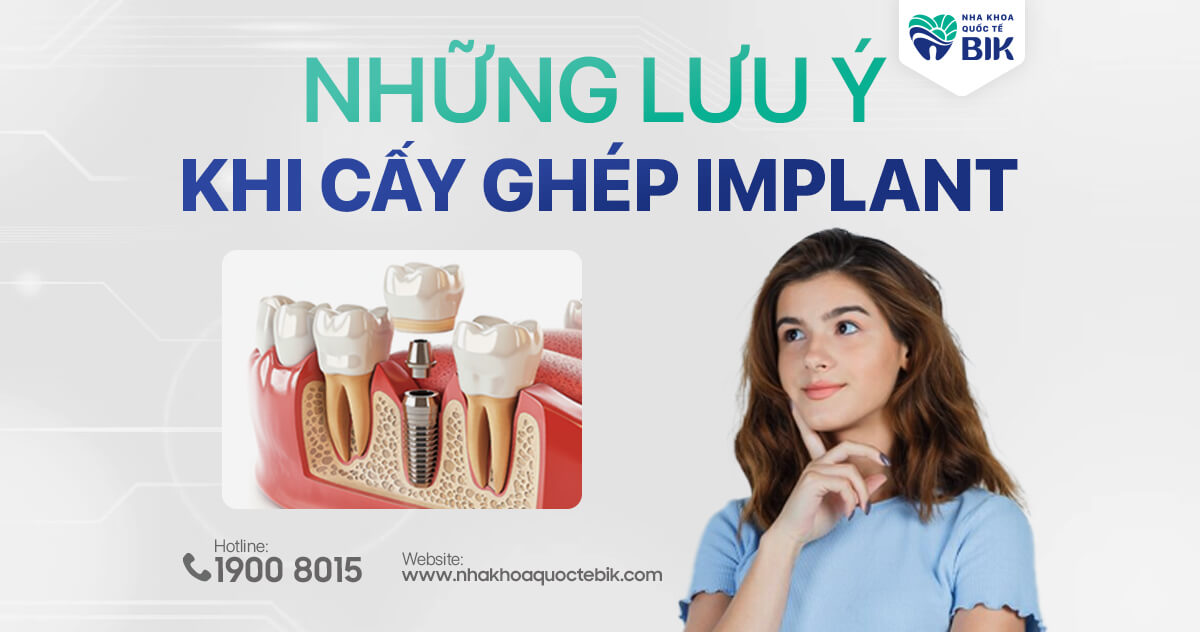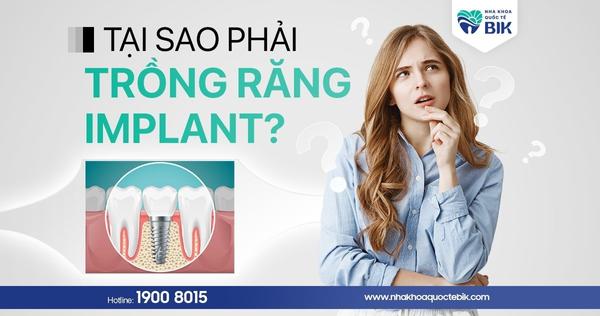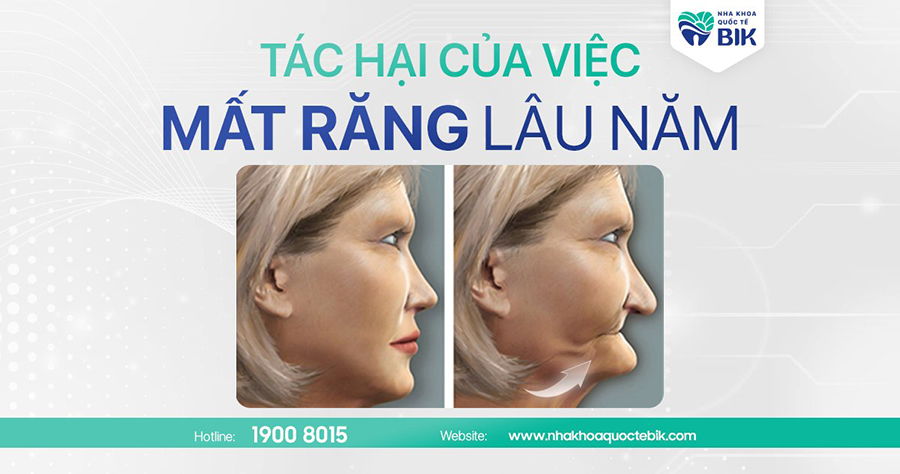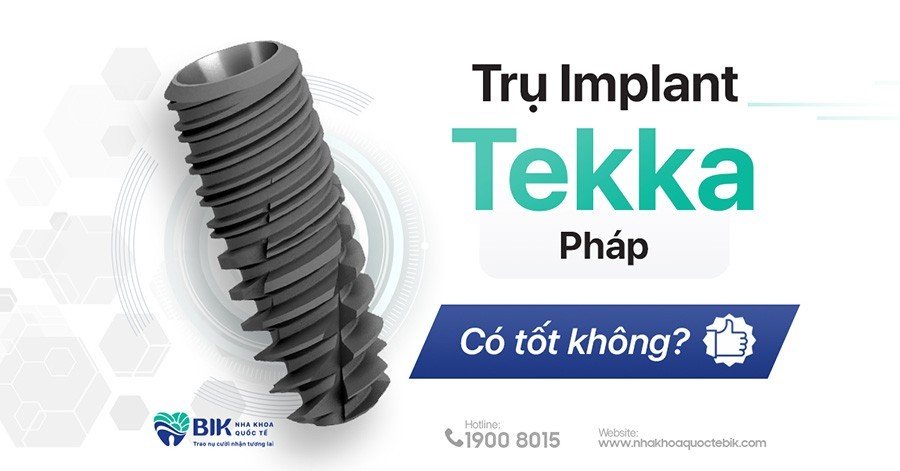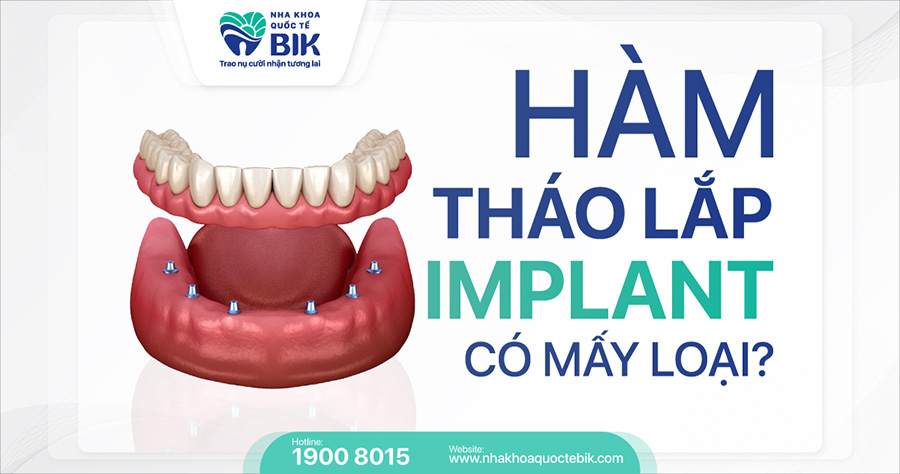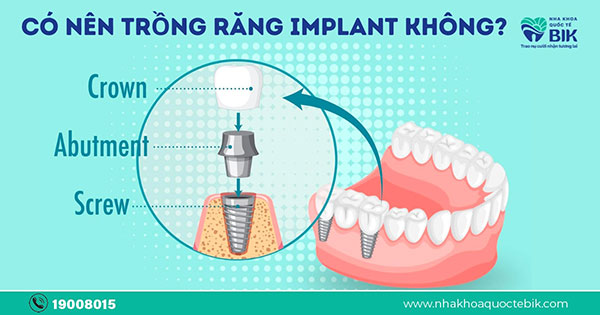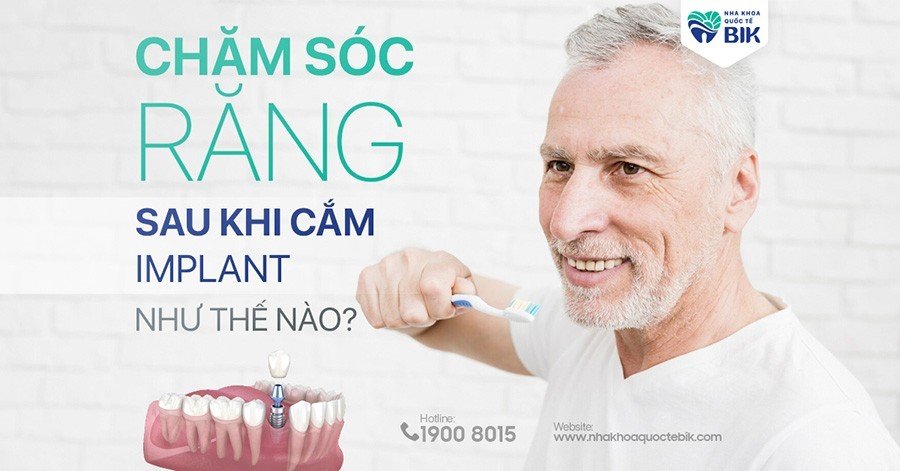
Because the wound will be formed on the jawbone after implant placement, oral care after implant placement to avoid the wound being affected and leading to infection is very important. If not properly cared for, the most serious consequence is that the implant will be rejected from the jawbone, causing the treatment to fail. Join BIK International Dentistry to learn how to care for teeth after implant placement in the article below!
1. Possible complications after implant placement
After implant placement, if the wound is not properly cared for, it can cause the following complications:
1.1. Bleeding
Normally, the implant site will continue to bleed for 30 minutes after surgery, the patient needs to bite the gauze tightly to stop the bleeding. However, if the bleeding lasts longer and shows no signs of stopping, the patient should see a doctor immediately for timely treatment.
1.2. Infection
Infection is a fairly common complication after implant placement. The sign of this condition is that the tissues around the implant area are inflamed due to bacterial attack. Infection can last for many months after surgery, and if severe, it will lead to inflammation and cause treatment failure.
1.3. Pain and swelling
Because the gums and jawbone are affected when the implant is placed, pain is inevitable after surgery. The doctor will usually prescribe painkillers and antibiotics to help the patient feel more comfortable in the first few days. If after about 5-7 days the pain does not show signs of abating, the patient should go to the dentist immediately for early treatment.
1.4. Rejected implant
The implant needs to be integrated into the jawbone before the doctor can attach the porcelain crown on top and complete the implant restoration. The most serious complication that can occur after implant placement is that the implant is rejected from the jawbone for many reasons, one of which may be due to the jawbone quality not being good enough.
2. The role of dental care after implant placement
Oral care as well as wound care after implant placement will directly affect the bone integration time, quality and lifespan of the implant. If the patient strictly follows the doctor’s instructions and strictly follows the eating and oral hygiene habits after implant placement, the implant can last up to 20 years in the oral cavity and even a lifetime if choosing a high-quality implant.
On the contrary, if the wound at the implant site is not properly cared for after surgery, it is easy to lead to infection, thereby causing the implant to be rejected and not bringing the expected results.
3. Instructions for dental care after implant placement
After implant placement, customers can refer to the following ways to best care for their teeth:
3.1. Bite the cotton tightly to stop bleeding
Bleeding during implant placement is very normal and almost all patients experience it. At that time, the doctor will instruct the patient to bite the cotton tightly for about 30 minutes until the blood clots.
3.2. Apply ice to relieve pain
After the anesthetic wears off, the patient will feel sore and the face will be slightly swollen, but the pain will be more or less depending on each person’s constitution. At this time, the patient can take a towel wrapped in ice and apply it to the outside of the cheek in the swollen and painful area to feel more comfortable.
3.3. Take medication as prescribed by the doctor
When necessary, the doctor will prescribe pain relievers and antibiotics to help reduce pain in the first few days after surgery. Note that you should not use any medication without a doctor’s prescription to ensure safety and avoid the situation of the implant being rejected.
3.4. Reasonable diet

In the first days after surgery, patients should drink enough water and eat liquid foods such as porridge, soup, oatmeal, milk, … limit force to avoid affecting the wound. After 2 weeks, the wound heals, the patient can eat and drink normally, paying attention to supplementing enough nutrients from meat, fish, green vegetables, fruits, etc.
However, until the porcelain crown is attached and the cosmetic dental restoration process is completed, the patient should abstain from eating or drinking the following foods:
– Coffee, soft drinks, foods containing a lot of sugar such as cakes, candy, ice cream, etc.
– Food that is too spicy, too hot, too hard or too chewy because they can cause the wound to be affected and lead to infection.
– Absolutely do not smoke after implant placement because nicotine is a factor that makes the implant easily rejected from the jawbone.
3.5. Proper oral hygiene
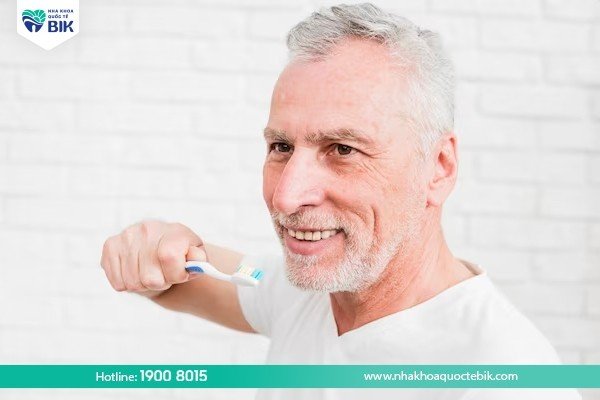
Proper oral hygiene according to the following instructions will avoid damaging the newly inserted implant:
– Brush your teeth at least twice a day with a soft-bristled toothbrush, using gentle force, avoiding touching the implant wound.
– Use dental floss to clean food debris around the implant site, the space between teeth to avoid inflammation around the implant.
– Use specialized mouthwash for implant cases.
3.6. Avoid strenuous exercise
After implant placement, avoid strenuous activities such as exercise and jogging for the first few days to avoid damaging the implant site, causing the implant to become loose and out of place.
3.7. Regular check-ups
Go to the dentist for regular check-ups as directed by your doctor to check the level of integration of the implant into the jawbone. At the same time, promptly correct any unexpected problems that may arise.
4. Some important notes after implant placement
To help the wound heal smoothly and quickly after implant placement, customers can refer to some of the following advice from experts at BIK International Dental Clinic:
– For about 3-4 days after surgery, although there is no pain thanks to the support of pain relievers, the patient may feel a little uncomfortable because the wound has not healed.
– The implant area may also be slightly swollen, but this is completely normal and very common. If the swelling and pain are too severe, you should see a doctor immediately for timely treatment.
– Depending on each person’s constitution, the wound may still bleed slightly for a few days after surgery. At this time, the patient can bite a cotton swab to stop the bleeding.
– You should follow the instructions of a specialist and take some proper oral care measures to achieve the best implant results.
So taking care of your teeth after implant placement is extremely important to help protect your oral health and prevent the implant from being rejected from the jawbone, affecting the treatment results. If there are any unusual signs after implant surgery, customers should go to a reputable dental facility for timely treatment.

